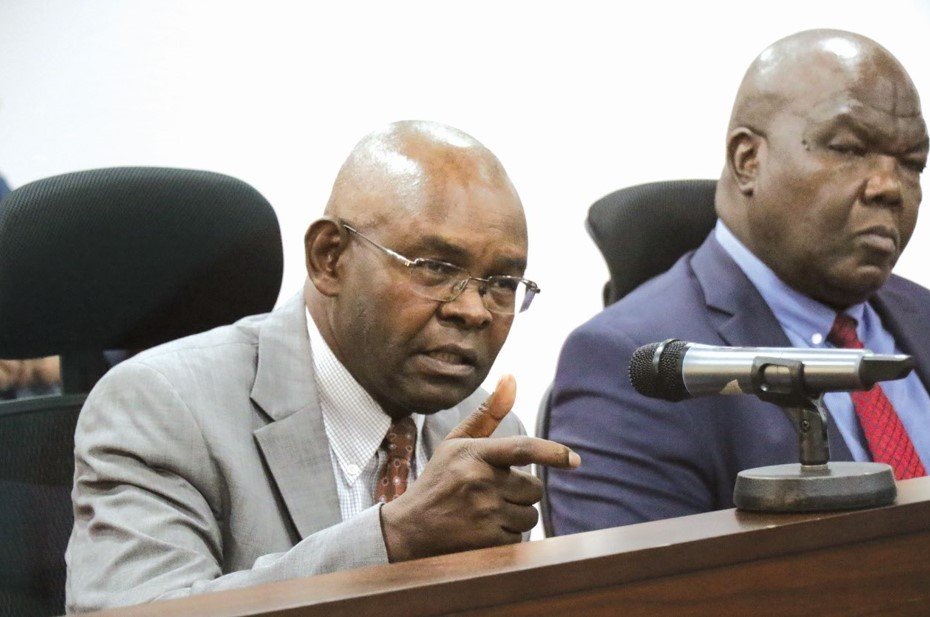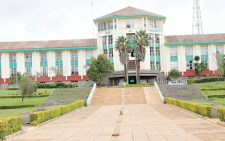House team begins probe into Sh14.2b currency printing deal

A House team has commenced a probe into how the Central Bank of Kenya (CBK) awarded a Sh14.2 billion-contract for the replenishing of worn out Kenya shilling notes to a German firm.
Yesterday it emerged that CBK had entered into a multi-billion-shilling contract with Giesecke + Devrient Currency Technologies for the printing and replenishing of bank notes for a five-year period.
Central Bank Governor Kamau Thugge, while appearing before the National Assembly Finance and National Planning Committee yesterday, said that the government had resorted to the measure following the exit of De La Rue.
Thugge disclosed that under the new contract, the foreign firm was to print and replenish 460 million pieces of Sh1,000 notes and 170 million pieces of Sh500 notes.
For the Sh200 notes, it is expected to avail 260 million pieces and a further 690 million pieces for the Sh100 notes. It is also expected to deliver 460 million pieces of Sh50 bank notes for the contractual period.
The Molo MP Kimani Kuria-led committee heard that the firm had already delivered on the replenishment of part of the Sh1,000 notes as of August this year with more to be introduced in a few months’ times.
“Following the exit of De La Rue, the country was at risk of stockout of bank notes, with grave economic and national security implications… we knew the country needed this stock up process and that’s why we went through all legal processes in the tendering process,” submitted Thugge.
“I would also want to clarify that the firm is not printing new currency but replenishing the existing ones that are old and worn out,” he added.
Things, however, turned murky after the committee learnt that the company had been single sourced by the CBK as opposed to going through an open tender system.
“Who really owns this company? How did we settle on it? How many other jobs have they done? What was the real reason it was contracted?” questioned Eldas MP Adan Keynan. “We will need you to furnish this committee with will the documentation relating to the new contract including a justification of the closure of De La Rue.”
Cost of the contract
The MPs further sought to know whether there was value for money and further poked holes into the sudden exit of banknote printing firm De La Rue- the firm contracted for the printing of new currency in 2019.
“When you handpick a firm, how do you ascertain the cost of the contract? Also, on printing of these notes, will the existing ones continue being legal tender?” committee chair Kimani posed.
He also sought an explanation from the Governor and his team on how it was possible for the current contract to cost Kenyans Sh14.2 billion for the production of 2.04 billion notes while it cost Kenyans $3 million more for the production of 2.35 billion bank notes in various denominations for the contract entered into with De La Rue in 2019.
“This committee needs to understand what is the firms’ scope of work…also, how can it be that this contract is USD 3 million cheaper than the one we got into with De la Rue in 2019? It shows there was certainly a big rip off with our previous contract and it’s something that should be interrogated,” emphasized the chair. Baringo MP Joseph Makilap querried the exact number of notes that had been worn out to the extent that CBK needed Sh14.2 billion to replenish them.
In his defense, Thugge submitted that the issuance of contract to Giesecke + Devrient Currency Technologies had been greenlighted by the highest security and constitutional organs on the land including the National Security Council and the office of the Attorney General.
“We will avail the documents. We have nothing to hide. We applied for the Classified procurement process through Treasury, which then went to the National Security Council, later the Cabinet which analysed and issued a directive to Treasury that we (CBK) proceed with procurement,” Thugge said.












